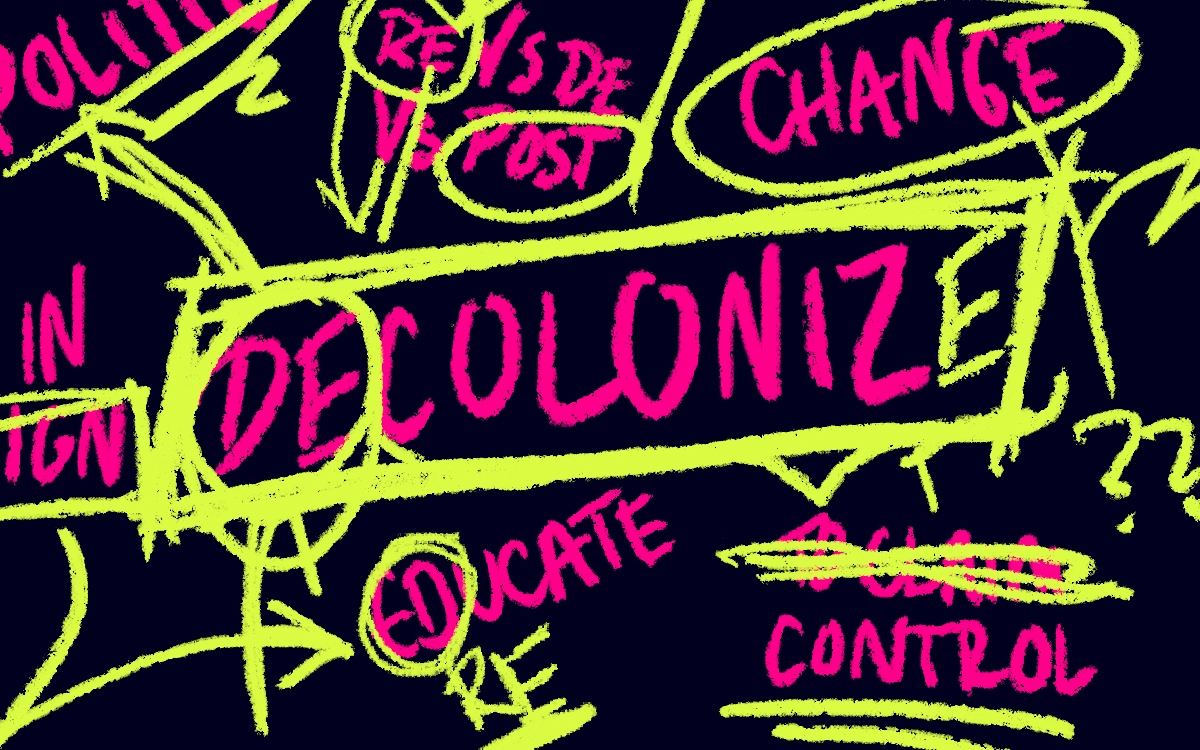

Apr 21, 2021
The word “decolonisation” was first coined by the German economist Moritz Julius Bonn in the 1930s to describe former colonies that achieved self-governance. Now, decolonising is often understood as the process by which we rethink, reframe and reconstruct those artefacts, structures and processes that preserve the Europe-centred, colonial lens - the ‘default’. In the wake of a tumultuous 2020 we are waking up to the imbalance of power and privilege created by this invisible colonial paradigm.
In this article we explore how POC are dismantling the Western-centric “default” to address the systemic biases and create new commercial opportunities. Through music, film, art, architecture, literature and wellness, they are proposing new systems, processes and lenses with which to appreciate and create culture.
Meaningful contributions to EDI are obligatory, not optional. The mirror has been held up to the third sector and, in some places, found wanting. In August 2019 the hashtag #CharitySoWhite sparked a conversation about racism in the charity sector with thousands of people sharing their experiences. Since then the sector has been on the back foot trying to tackle systemic bias, racism and privilege. Too frequently we’ve had fundraising briefs that start with the same implied audience - ABC1 [white] women with children. It’s to the sector’s advantage to design and innovate with EDI front of mind and serve all beneficiaries.

Charity So White

Architecture schools in Philadelphia are implementing curriculums which consider design through a wider lens of environmental, political and socio-economic factors, shifting away from its former focus on Western ideology. They're educating future architects to consider both community and history as they design. A similar debate is happening with the UK. A petition from students at Merchant Taylor School forced the renaming of Clive of India House due to its links to the controversial military leader.

Khyam Allami and Counterpoint are revolutionising electronic music with software which offers alternative tuning systems so that its users have the ability to authentically emulate musical styles which are local to them. “Like social media platforms, dating apps, and all data-driven algorithms, music production tools have the unconscious biases of their creators baked into their architecture. If a musician opens a new composition and they are given a 4/4 beat and equal tempered tuning by default, it is implied that other musical systems do not exist, or at least that they are of less value.”

Justin Michael Williams’ Stay Woke offers up a nuanced alternative to popularised mindfulness practices which, he states, are often less effective for those with complex or traumatic life experiences. “The reason why so many people try meditation and it doesn’t stick is because they’re practicing the wrong kind of meditation … If you’re someone who thinks you can’t meditate because you can’t get your mind to stop thinking, I got some news for ya: If you can worry, you can meditate.”

Decolonising Contraception is a UK based community organisation seeking to challenge the additional barriers some groups face to accessing health services & addressing the idea that some groups have more reproductive rights than others. Their Sexfesto argues that sexual and reproductive health “hasn't addressed its colonial origins - its practice is derived from racial hierarchies and continues to operate based on a desire for population control. This in part contributes to health inequalities experienced by those experiencing racism.”
Too frequently workshops and meetings rely on the same familiar faces and voices, catering to the extroverts - the loudest voices in the room. Consider how the processes and products you use both internally and externally might have an implicit bias towards one perspective over another. How can innovation include more voices, more opinions, and create more and better ideas by bringing together multiple perspectives, experiences and voices?
Challenge your assumptions about who your audience is or could be. The whole sector is focusing on creating similar products for similar audiences. (Subscription products. Virtual mass pax. Facebook Fundraisers). There’s a competitive advantage to designing for different needs rather than lumping ‘mass’ into an audience in the name of inclusivity. Use Stay Woke as inspiration to challenge your assumptions about who those audiences are and how they want to engage with your cause. Find the clear space to differentiate and innovate.
In March 2021 we held the second in our series of Designing for Equity roundtable discussions, bringing together EDI leaders from across the sector to connect, collaborate and support each other in driving change. Reach out to nish@goodinnovation.co.uk if you or your team want to be part of the next session.
Just ask Barnardo’s or The National Trust. In challenging times we take inspiration from Arundhati Roy:
Arundhati Roy, War Talk